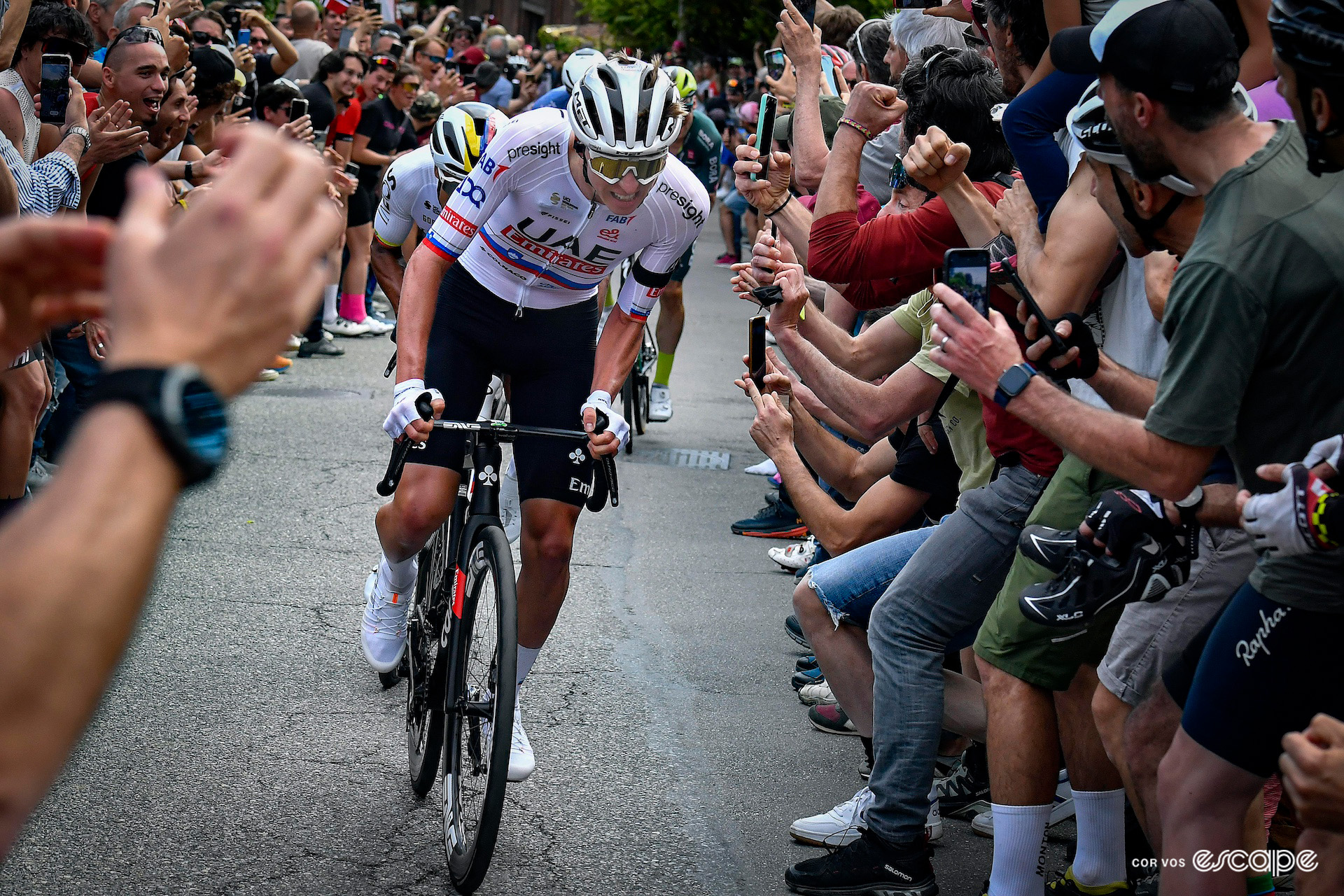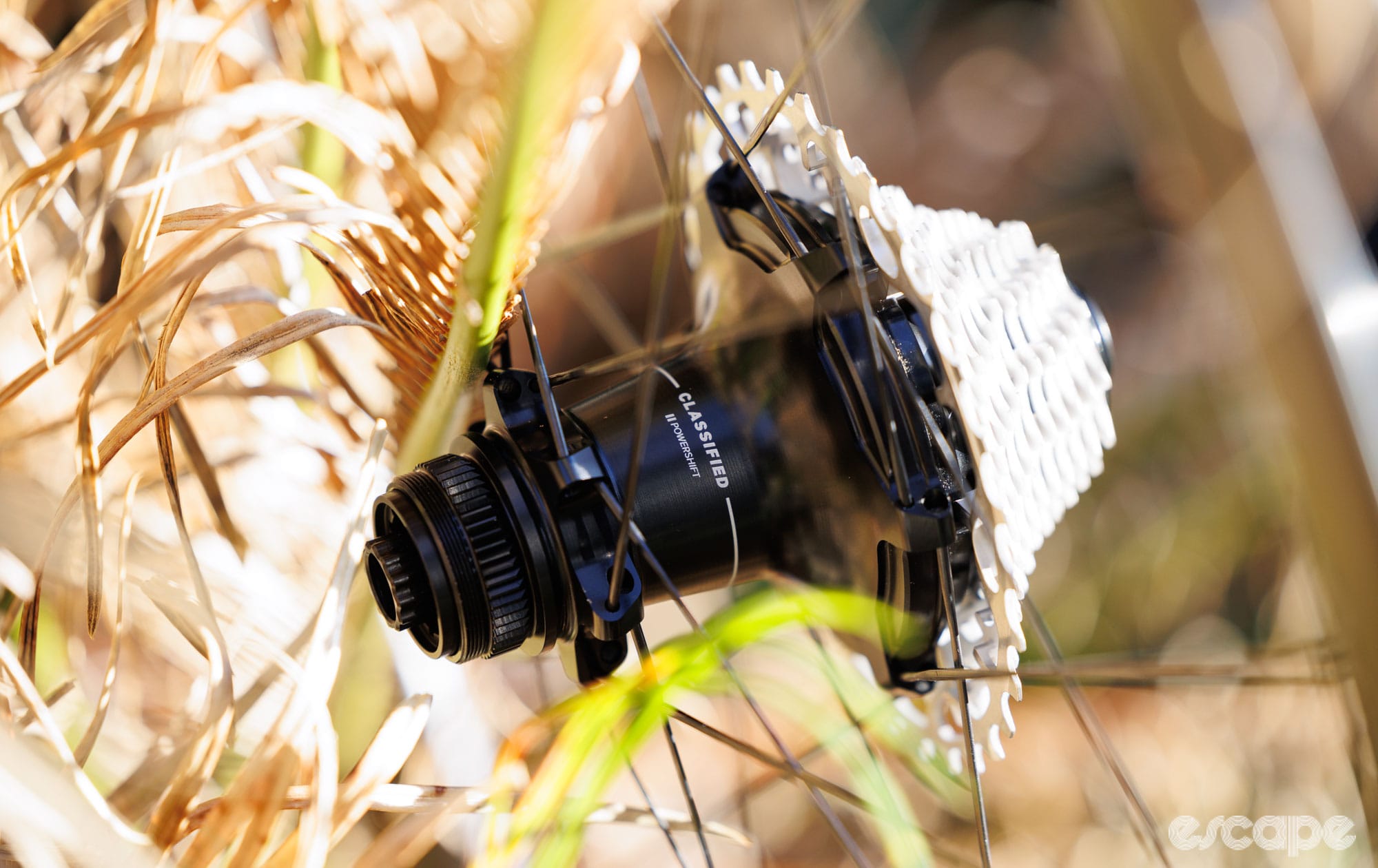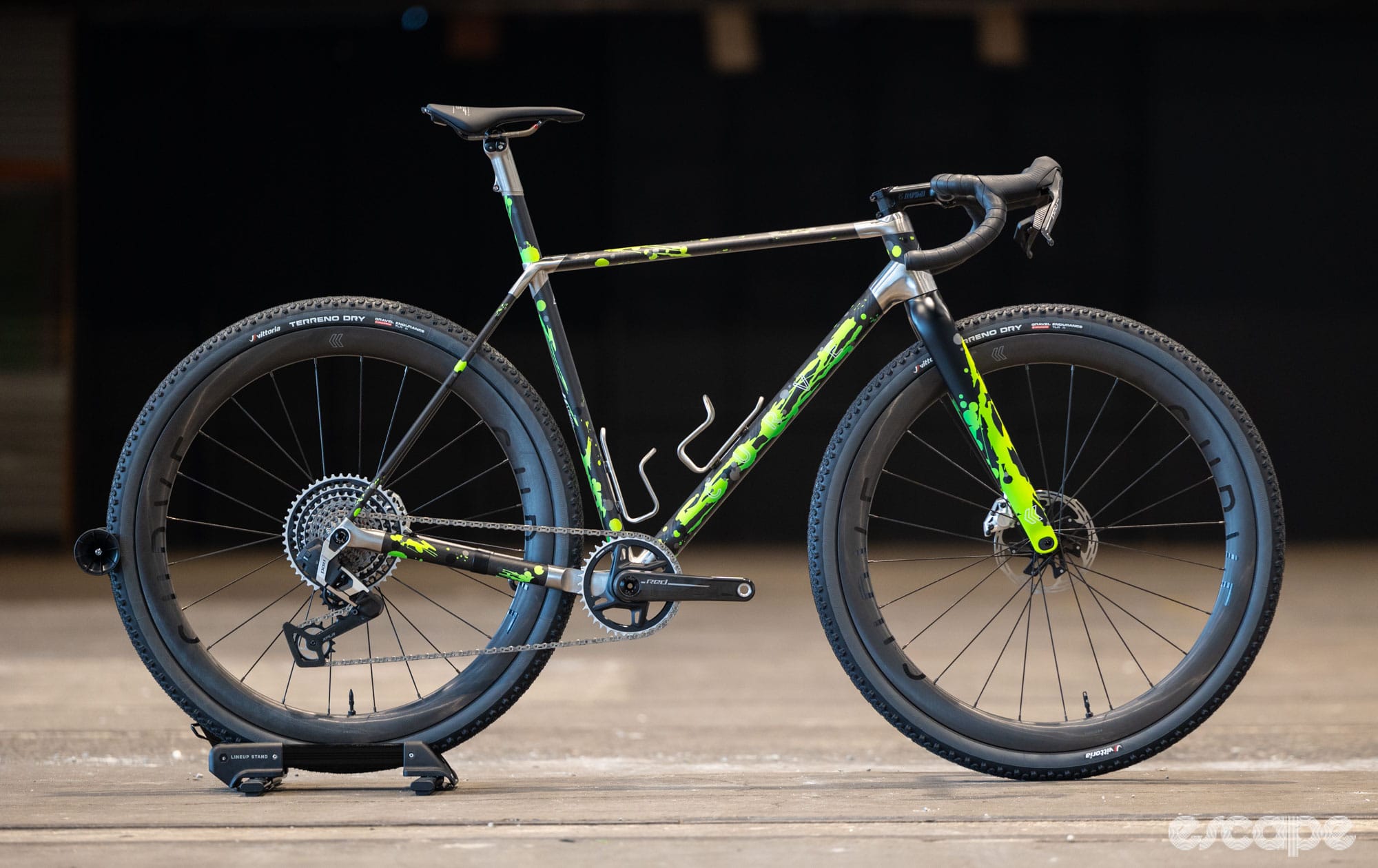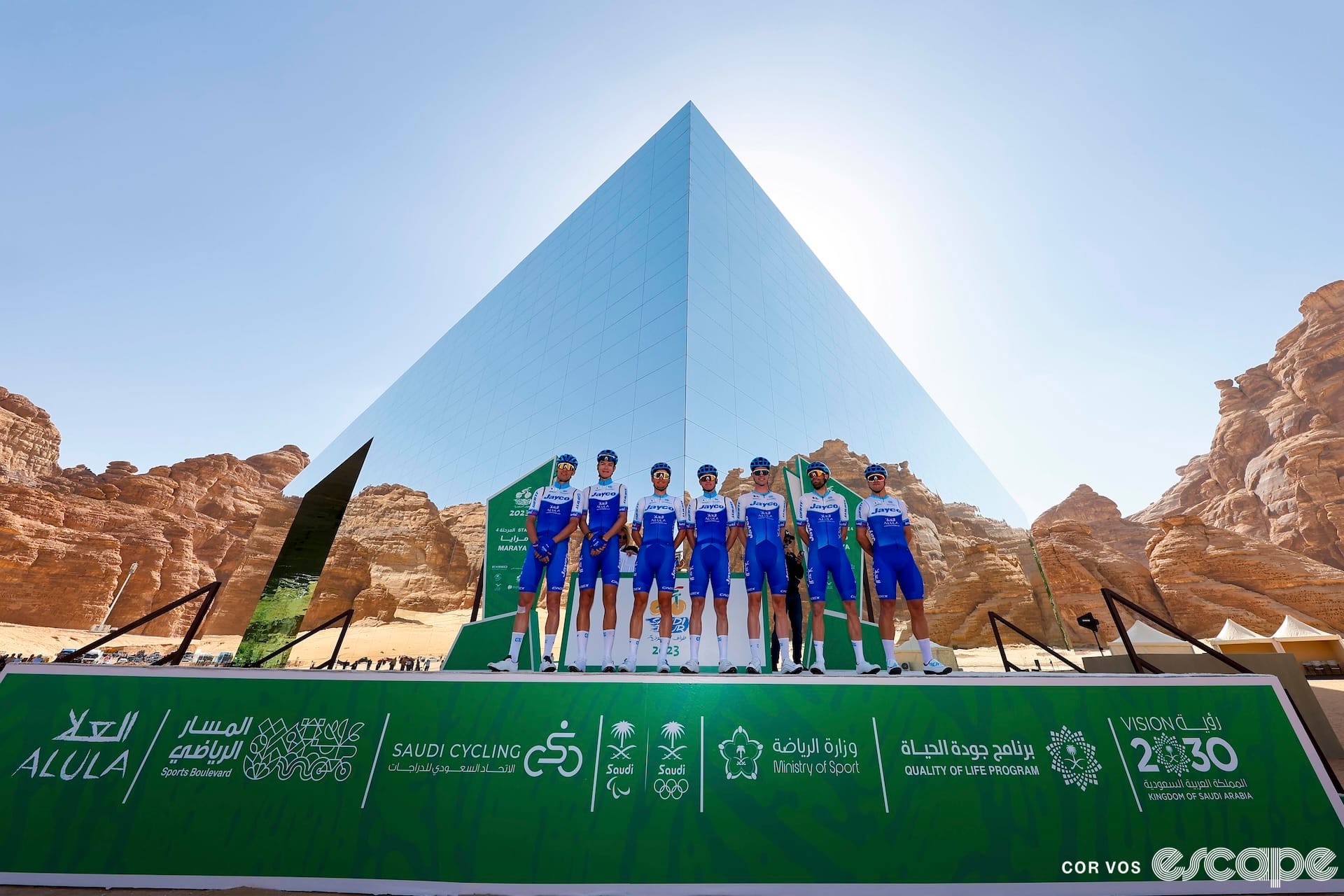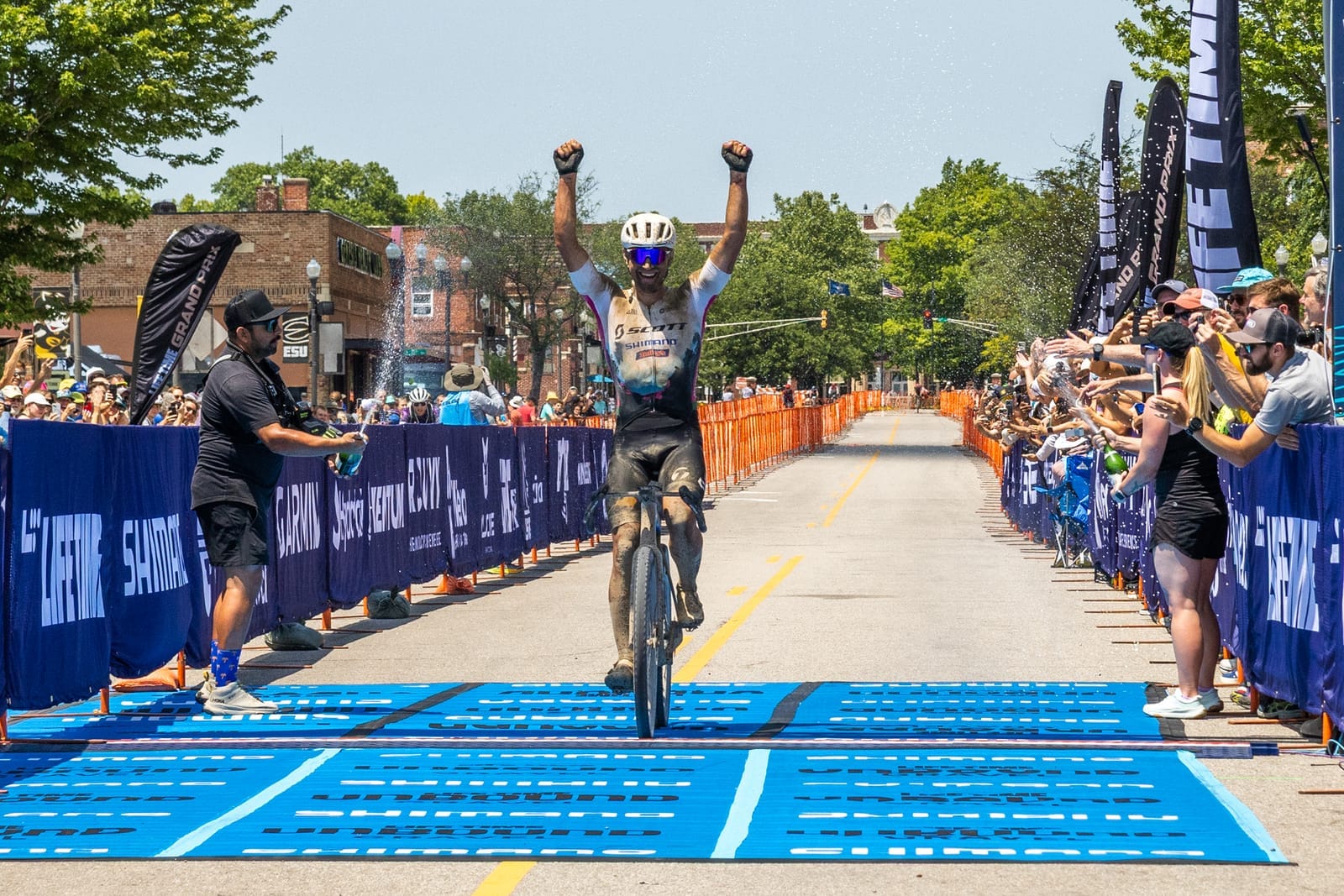It’s way too early to pass judgment on the strength of a team when the outlook is a three-week Grand Tour, but when you put yourselves so firmly in the spotlight only to fall short – and to admit to a little disappointment – it makes everyone look in your direction.
There was a fair amount of damage done by UAE Team Emirates on the penultimate climb of Colle Maddalena, a 7.1 kilometre climb averaging 6.6%. Domen Novak, Felix Großschartner and Mikkel Bjerg had taken over from Vegard Stake Laengen who had represented the figurehead of the ship for much of the 140-kilometre opening stage, and while Romain Bardet (DSM-Firmenich PostNL) and Thymen Arensman (Ineos Grenadiers) were among the bigger names thrown overboard on the punishing Cat.2 climb, most of their own riders were also thrown to the wind along the way.
“All in all I can be satisfied. It was a short stage and a fast first day of this Giro,” Pogačar said a little while after learning he’d finished third in the second-place photo finish behind the faster-sprinting Jhonatan Narváez. “We tried to control the stage, but it wasn't our day.”

By the top of the 7.1-kilometre climb, it seemed only Rafał Majka was left at Pogačar’s disposal, leaving the heir apparent to do all the work on the final launchpad a few kilometres from the finish line, both to catch the strong group of attackers and leave behind any rivals for the stage and overall.
“It's a shame that I had to attack from too far on the last climb, although I must admit that Narváez was very strong. He turned out to be able to follow my wheel,” the gaps at the foot of the San Vito climb were reportedly around 45 seconds between lone leader Nicola Conci (Alpecin-Deceuninck) and the bunch, with his fellow attackers wedged about halfway between. “The difference with the group in front of us was big and I had to do everything I could to close this gap. The fact that I managed to release all the classification men is a good sign.”
Pogačar tried a couple of times to leave behind the Ecuadorian national champion, but Narváez had done his homework and he would not let go. The pair were soon rejoined by Max Schachmann (Bora-Hansgrohe), also not a weak link in a climbers’ kick for the line.
“Once we reached the top of the climb, I knew that Narváez would be difficult to release. It has also been a while since I had to sprint against two riders. I started too early, but Narváez was just faster. I didn't have much of a chance, but I can look back on a good effort.”
While it doesn’t look great that only Pogačar was able to finish in the top 50 – bearing in mind that Juan Sebastián Molano and his lead-out man Rui Oliveira, along with workhorse Vegard Stake Laengen, should be let off on a stage such as this – UAE Team Emirates is one of the few teams with a singular GC name, and one who has made a career out of bombastic solo efforts after early damage from his team. That said, it should probably have been easy to get it done with numbers to spare on the relatively short stage 1, a day they’d targeted, and simpler in the grand scheme of things than many, if not most of the stages to come.
Like I said, it’s too early to accurately assess the team’s performance, and if other teams do pounce, Pogačar’s strongest-rider credentials should help him follow the wheels before he pounces himself, but UAE Team Emirates might need to be on their guard as early as tomorrow and the first summit finish. And besides, if he’s going to have a chance at the Giro-Tour double, Pogačar is going to need his team more than ever.
Did we do a good job with this story?

